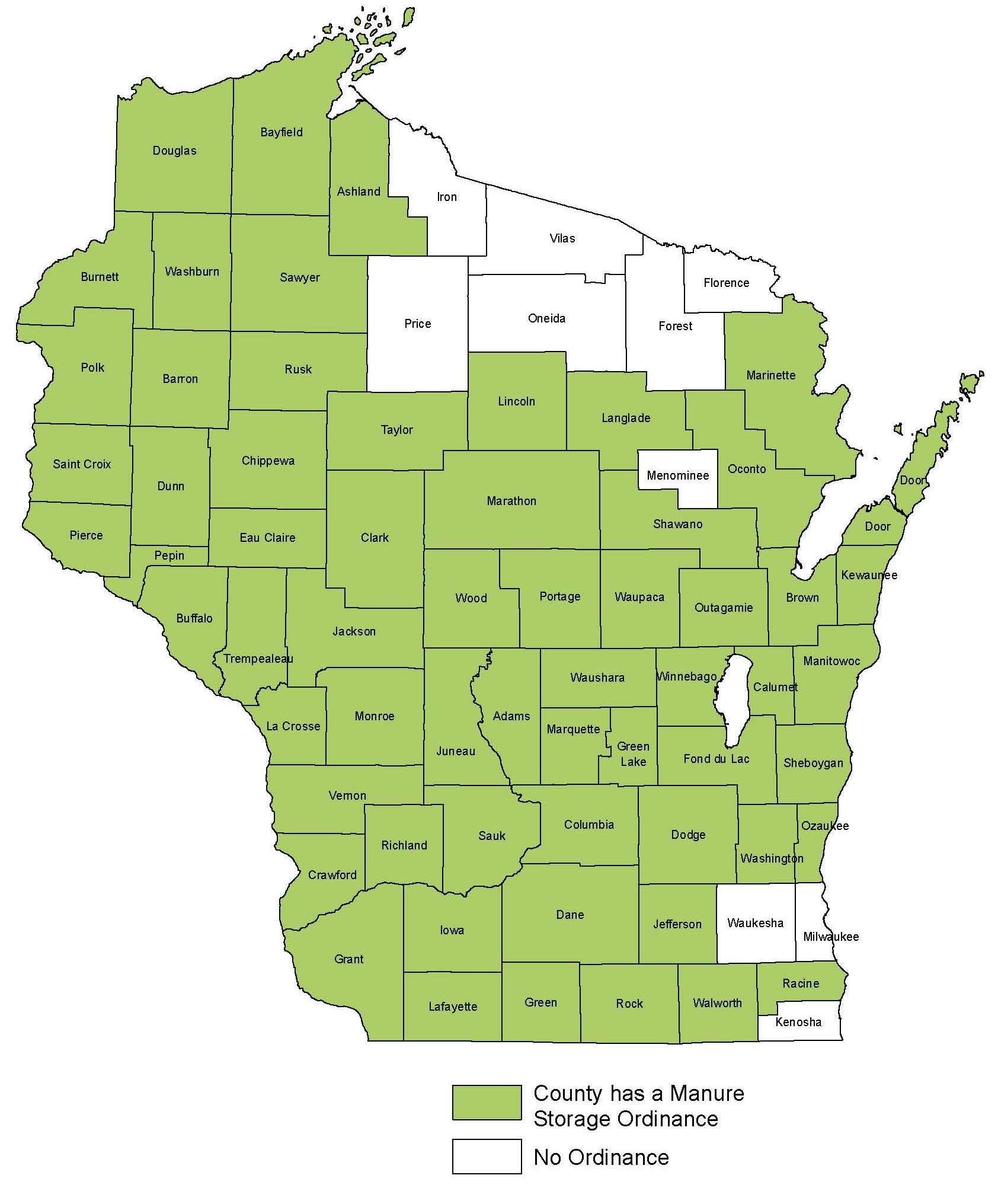 Local governments (counties, cities, villages, or towns) can create rules (ordinances) about manure storage facilities built after July 2, 1983. These rules must meet the technical standards set by the local government and also follow the Wisconsin Department of Agriculture, Trade and Consumer Protection's (DATCP) regulations. All counties with significant agricultural activity have adopted manure storage ordinances.
Local governments (counties, cities, villages, or towns) can create rules (ordinances) about manure storage facilities built after July 2, 1983. These rules must meet the technical standards set by the local government and also follow the Wisconsin Department of Agriculture, Trade and Consumer Protection's (DATCP) regulations. All counties with significant agricultural activity have adopted manure storage ordinances.
Per
ATCP 50.56, any local ordinance about manure storage shall include the following:
-
Authorities for the county, city, village, or town to adopt the ordinance
- The purpose and the reasons behind adopting the ordinance
- Explanations of important terms used in the ordinance
- Construction provisions
- Closure provisions, if any
- Provisions for monitoring the adequacy of manure storage systems, if any
- Information on how the ordinance will be administered (who inspects and enforces the rules, how to appeal decisions, penalties for breaking the ordinance, etc.)
- Rules about initial applicability and severability of the ordinance, if any
- The effective date of the ordinance
Important notes:
- Local rules should generally be consistent with state standards.
- Local governments can't force landowners to stop using or change livestock facilities or operations that existed prior to the effective date of the ordinance unless they offer to help with the costs (cost-sharing). This is based on sections
92.07(2),
92.105(1),
92.15(4), and
281.16(3)(e) of the Wisconsin Statutes; and
ATCP 50.08 and
NR 151.095 of the Wisconsin Administrative Code.
Getting DATCP's opinion:
- DATCP can help local governments find parts of their ordinances that don't match state standards. However, local governments are mainly responsible for making sure their ordinances are legally sound.
DATCP may review ordinances but doesn't officially approve ordinances.
- DATCP or the Wisconsin Department of Natural Resources (DNR) must approve local ordinance provisions that are stricter than state standards if they're needed to improve water quality. To avoid potential legal challenges, local governments should submit their existing stricter ordinances to DNR of DATCP for approval under
ATCP 50.60 and
NR 151.096 of the Administrative Code.
Additional Resources